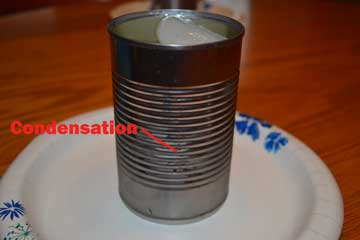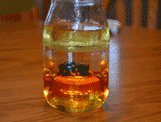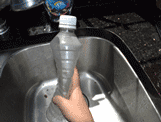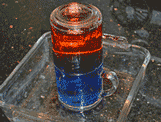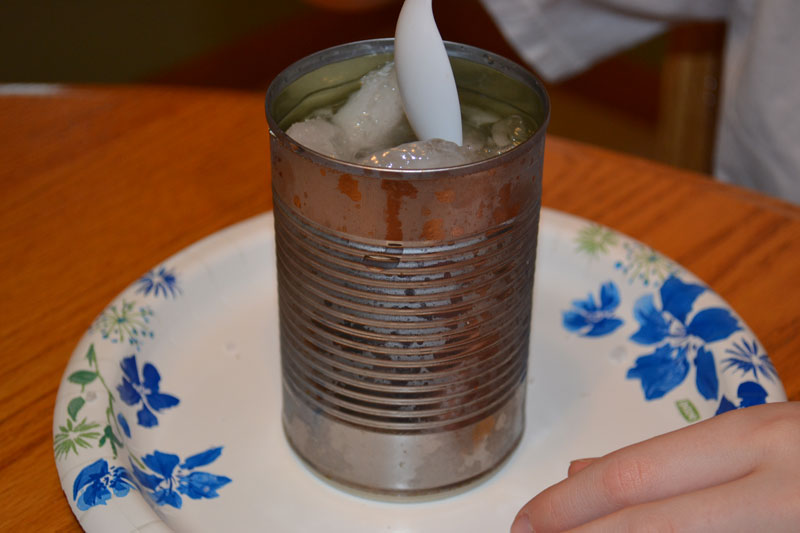
2
DifficultyWater Cycle Experiment
Experiment to change water into 3 phases
Posted by Admin / in Matter Experiments
In this water science experiment we will see the water cycle in action as it transitions through 3 different phases including liquid, gas, and solid. The following items are needed to conduct the water cycle experiment.
Materials Needed
- 2 metal cans (label removed)
- rock salt or table salt
- crushed ice
- Food coloring
EXPERIMENT STEPS
Step 1: Fill both cans with crushed ice.
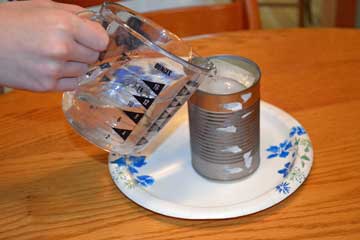
Step 2: Add water to both cans. Fill the cans to about 1" below the top of the can.
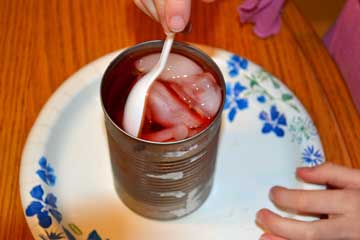
Step 3: Add 3-4 drops of food coloring to one of the cans. In the example, red food coloring was used. Stir in the food coloring to make a consistent color.
Step 4: Add 3-4 drops of food coloring to one of the cans. In the example, red food coloring was used. Stir in the food coloring to make a consistent color.
Step 5: Wait a few minutes and observe what happens to the outside of both cans.
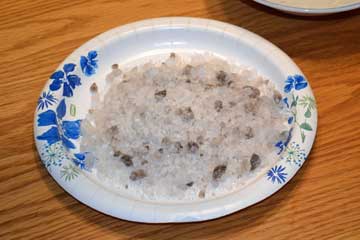
Step 6: Stir in about 3 tablespoons of rock salt or table salt into each can.
Step 7: Wait 15 minutes and observe the outside of both cans.
Science Learned - The Water Cycle
The air around both cans is cooled by the cold water. As the air is cooled it condenses. Water molecules in the air around the cans collect on the cold cans. The water is clear, not red because the source of the water is not from the can, but from the air around the can. When salt is added to the cans, the temperature of the ice water is lowered. This further cools the water that has collected on each can causing it to turn to frost. The experiment proves that water molecules in gas form will turn to liquid water when rapidly cooled. The liquid water will then turn to a solid (frost) when cooled below 32 degrees F.
The water cycle is an important part of the earth's natural science. The water cycle provides rain and snowfall which replenishes the water supply to help support life.
